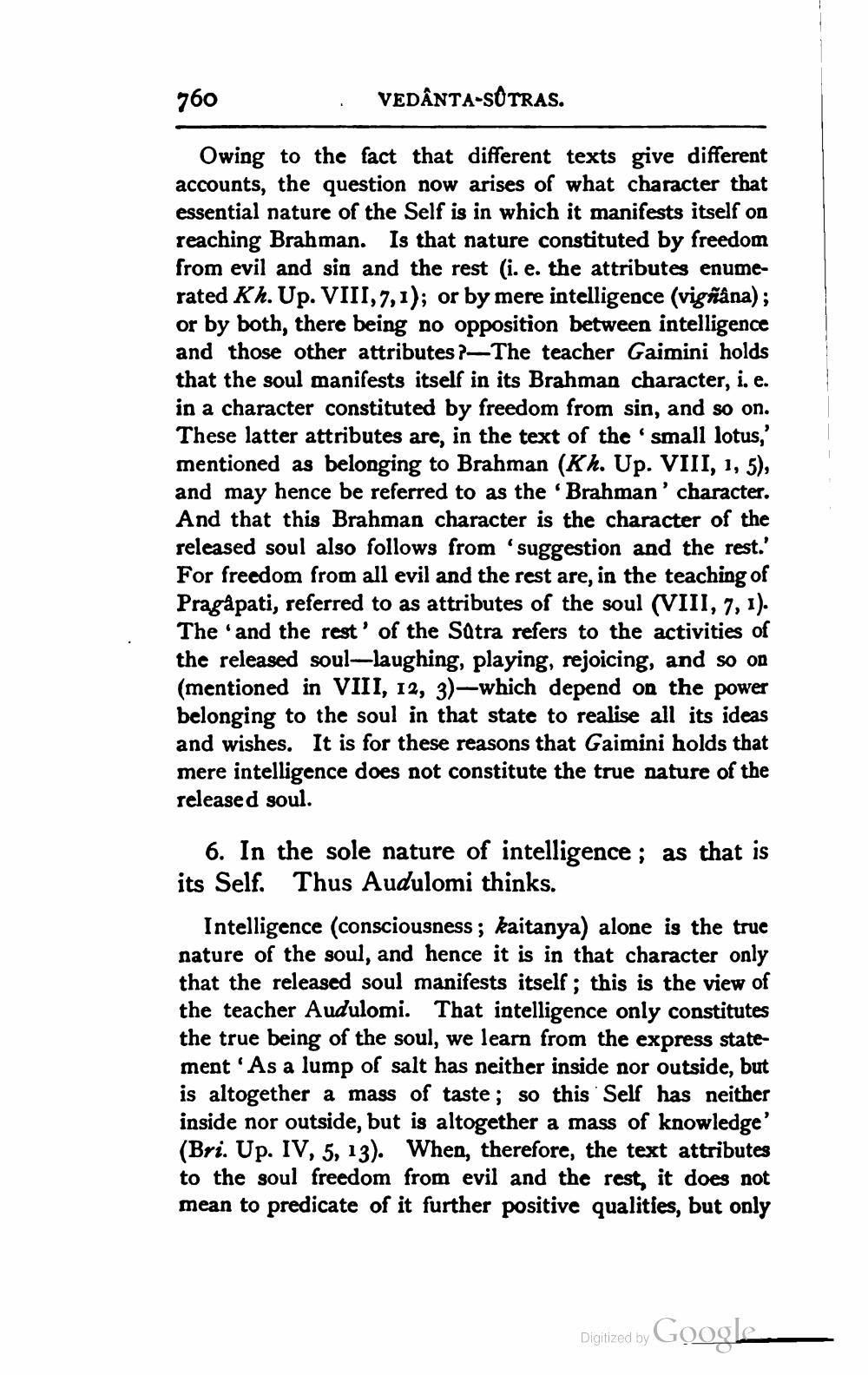________________
VEDANTA-SUTRAS.
760
Owing to the fact that different texts give different accounts, the question now arises of what character that essential nature of the Self is in which it manifests itself on reaching Brahman. Is that nature constituted by freedom from evil and sin and the rest (i. e. the attributes enumerated Kh. Up. VIII, 7, 1); or by mere intelligence (vigñâna); or by both, there being no opposition between intelligence and those other attributes ?-The teacher Gaimini holds that the soul manifests itself in its Brahman character, i. e. in a character constituted by freedom from sin, and so on. These latter attributes are, in the text of the 'small lotus,' mentioned as belonging to Brahman (Kh. Up. VIII, 1, 5), and may hence be referred to as the 'Brahman' character. And that this Brahman character is the character of the released soul also follows from 'suggestion and the rest.' For freedom from all evil and the rest are, in the teaching of Pragâpati, referred to as attributes of the soul (VIII, 7, 1). The and the rest' of the Sûtra refers to the activities of the released soul-laughing, playing, rejoicing, and so on (mentioned in VIII, 12, 3)—which depend on the power belonging to the soul in that state to realise all its ideas and wishes. It is for these reasons that Gaimini holds that mere intelligence does not constitute the true nature of the released soul.
6. In the sole nature of intelligence; as that is its Self. Thus Audulomi thinks.
Intelligence (consciousness; kaitanya) alone is the true nature of the soul, and hence it is in that character only that the released soul manifests itself; this is the view of the teacher Audulomi. That intelligence only constitutes the true being of the soul, we learn from the express statement 'As a lump of salt has neither inside nor outside, but is altogether a mass of taste; so this Self has neither inside nor outside, but is altogether a mass of knowledge' (Bri. Up. IV, 5, 13). When, therefore, the text attributes to the soul freedom from evil and the rest, it does not mean to predicate of it further positive qualities, but only
Digitized by Google




